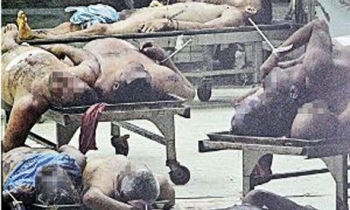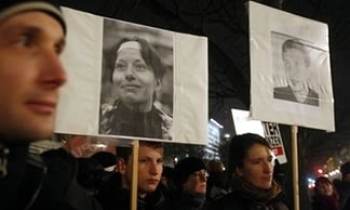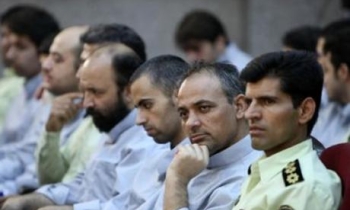Mob violence and thuggery were the leading causes of violence against the Indonesian press in 2005, a report by the Alliance for Independent Journalists (Aliansi Jurnalis Independen, AJI) has found. The organisation says close to one-third of attacks on the press were committed by mobs and thugs last year.

AJI's findings were released on 10 August 2006 to mark the press freedom group's 12th anniversary. The International Federation of Journalists (IFJ), with whom AJI is affiliated, expressed concern about the violence against journalists, and urged the Indonesian government to take action to "ensure these assaults on press freedom no longer continue and those responsible for these cowardly attacks are held accountable."
AJI recorded 23 such cases out of a total of 64 between August 2005 and August 2006. During that period, one journalist was murdered, one abducted, one imprisoned and 34 assaulted. Twelve journalists faced intimidation and seven were sued in court.
"This worrying trend of violence against journalists, as exposed by AJI's data, must not be tolerated. It is vital that these records are noted and action is taken to ensure these assaults on press freedom no longer continue and those responsible for these cowardly attacks are held accountable," IFJ President Christopher Warren said.
The second leading "enemy of the press" was government officials, with 14 cases of attacks, followed by the police with eight cases. "It is deeply concerning that violence is going unchecked. The Indonesian government must do more to make it clear that attacks on journalists is anathema to democracy," Warren said.
AJI also found that the capital, Jakarta, was the most dangerous place in the country for journalists in 2005, with 13 cases of violence recorded, followed by East Java and Nanggroe Aceh Darussalam with eight cases each.
Among the major arrests this year was that of Teguh Santosa, chief editor of Rakyat Merdeka Online (RMOL), on July 19 for publishing cartoon in the February 2 edition of RMOL. Teguh acknowledged he had re-published three of twelve cartoons taken from a Danish newspaper, "Jyllands Posten", which had published them in October 2005.

RMOL removed the cartoons from its site after receiving protests from some Muslim groups who felt harassed by the drawings, which they perceived as insulting to the prophet Mohammed and Islam. These individuals also demanded that RMOL apologise to Indonesian Muslims for making them uneasy and angry. RMOL published an open apology without any cartoon or picture.
AJI had insisted that Santosa had no desire to provoke Muslims when he posted the cartoons, and that his sole aim was to provide his readers with background to the controversy they had caused. Santosa was the second Indonesian journalist to suffer consequences for reproducing the cartoons. David Da Silva, the editor of the Christian magazine Gloria, was fired by his employers in February.
Herliyanto, a freelance reporter, was found dead with numerous stab wounds on April 29 in a wooded area near the town of Banyuanyar in East Java province. Little has been publicly reported on the killing, which occurred in a remote area.
AJI gathered information indicating that Herliyanto was investigating corruption allegations involving school construction funds in the village of Tulupari. AJI sent a fact-finding mission to the area, and the local police indicated they would conduct an independent investigation into the case.
The campaign for the decriminalising of defamation in Indonesia took a giant step forward when the Supreme Court on February 9 cleared Tempo Magazine chief editor, Bambang Harymurti of all charges of criminal defamation. The three-justice panel ruled unanimously that the Press Law should be used to hear defamation cases against journalists instead of the Criminal Law thus overturning earlier decisions by the High Court of Jakarta and the Regency Court of Central Jakarta, which had found Bambang guilty of criminal defamation and sentenced him to a one-year prison sentence.
Bambang was found guilty by a Jakarta Court on September 16, 2004, of defaming businessman Tomy Winata over an article published in Tempo magazine on March 3-9, 2003. The article aired allegations that Winata stood to benefit from a fire in a textile market.

Attack on freedom of expression has also come from radical Muslims. The Nahdlatul Ulama (NU), which boasts 40 million members, issued a fatwa, or edict, last month prohibiting Muslims from broadcasting, publishing or watching "infotainment" shows. The fatwa asserted that gossiping about others is considered haram, or sinful, under Islamic teachings.
"We have come to the conclusion that it is sinful to consume gossip news because it's forbidden by the Islamic teachings as stated in the holy Koran," said NU chairman Hasyim Muzadi. "Gossip shows mostly reveal secrets, often bad secrets about celebrities and their families, and the industry is the only party benefiting from it," he said.
Meanwhile, after 44 four years of operation, state-owned television company TVRI has become a public television network, funded by the government but intended to be editorially independent.
The head of the company's supervising board, Musa Asy'arie, announced the change during the commemoration of the company's anniversary August 24 at its headquarters in Senayan, South Jakarta. "I hope this institution may grow as a non-commercial, independent media source that serves the interests of the public," he was quoted as saying by the detikcom news website.









